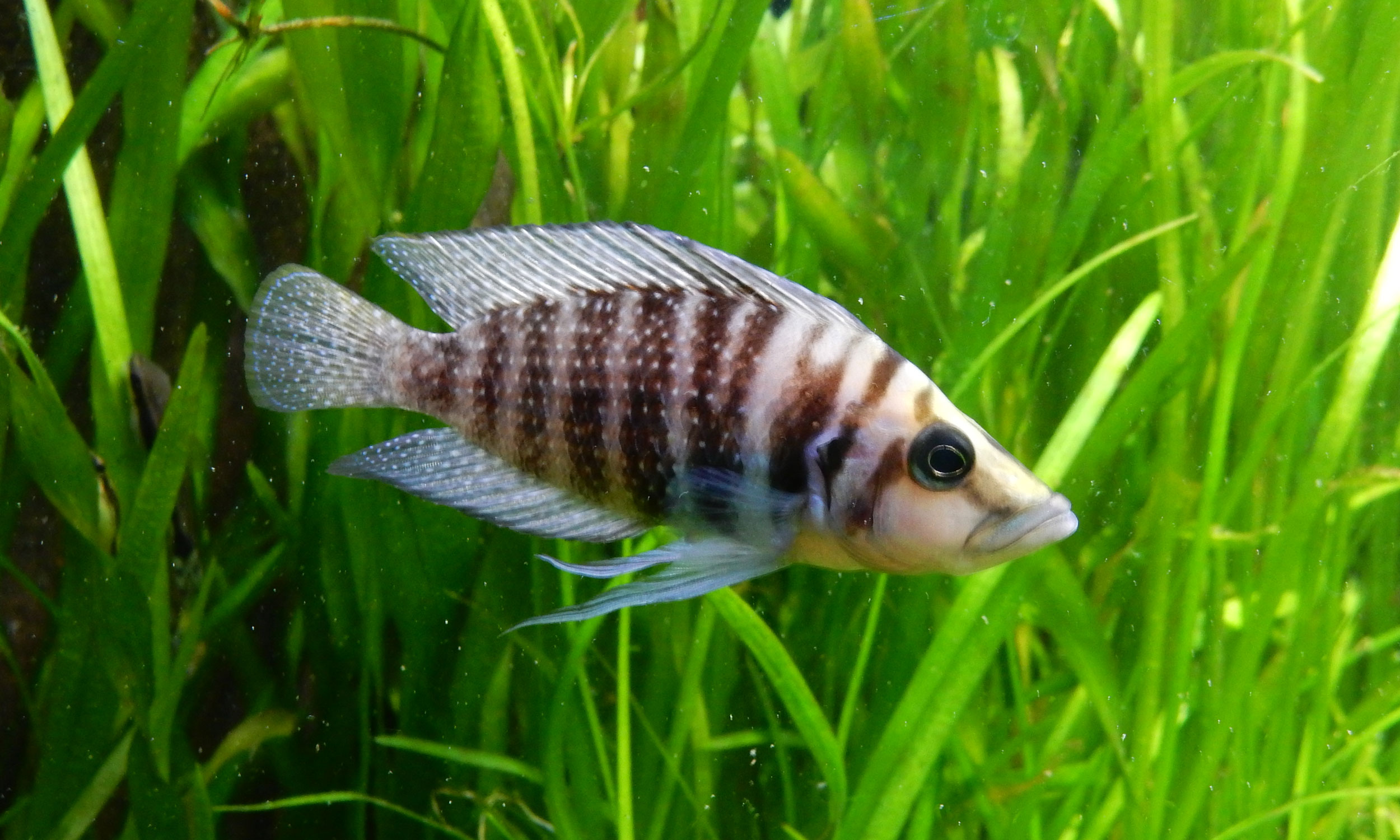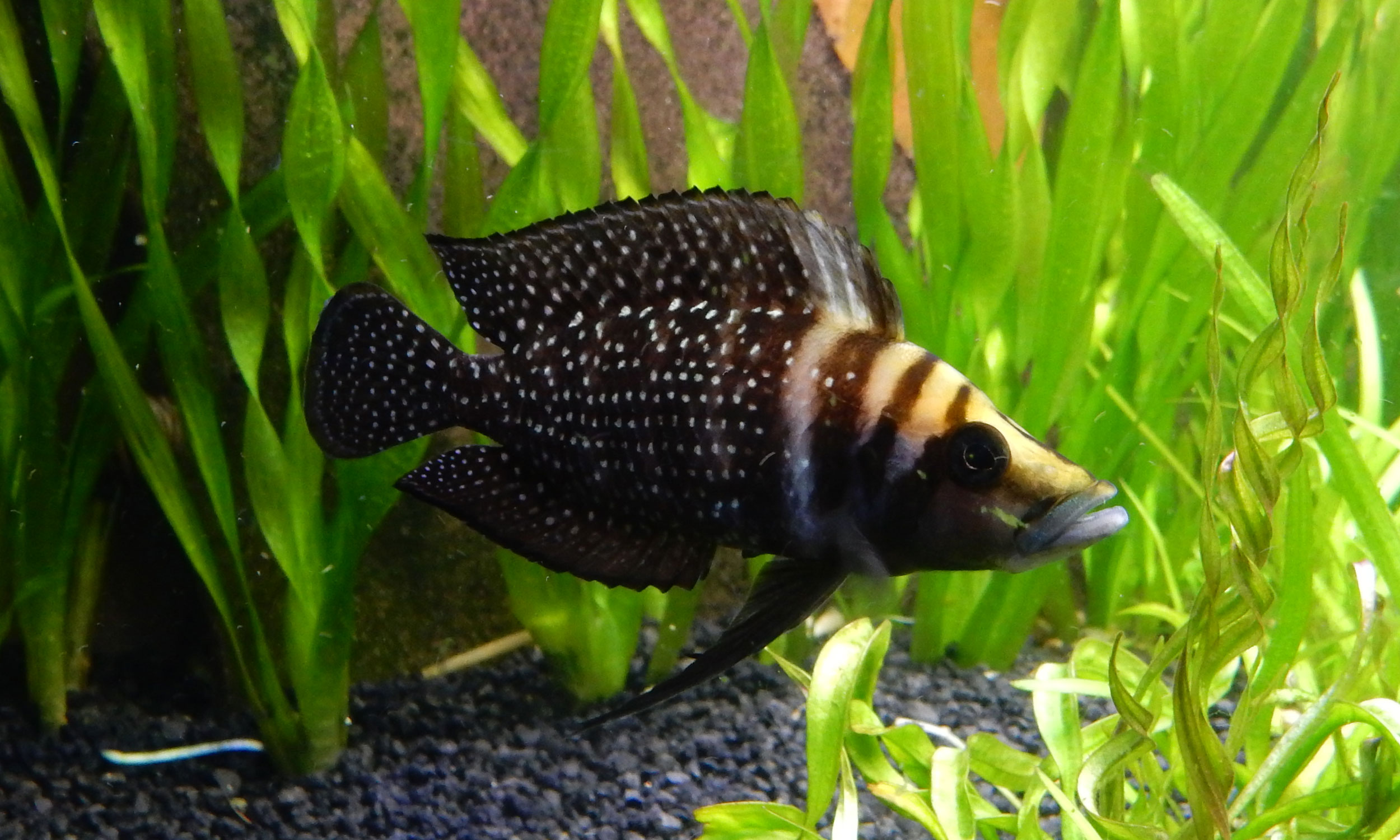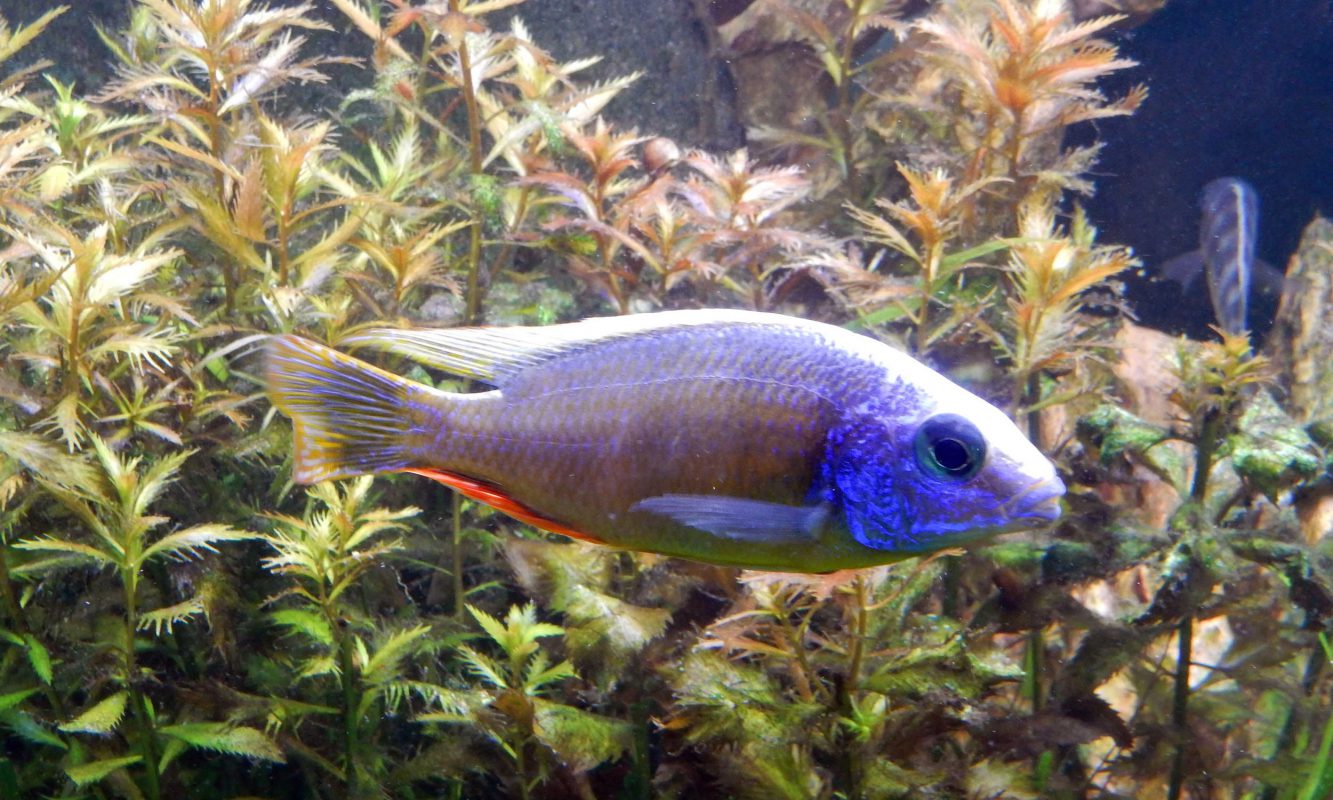Stress can affect our well-being, damage our health and cause diseases. This not only applies to humans but also to animals, including fish. But stress isn’t always a bad thing; in fact our well-being can even be increased when exposed to positive stress, known as “eustress”. For aquarium fish, a typical example of this is the feeding process. When we first appear in front of our aquarium to feed our fish, they often seem anxious and timid because the situation is unusual and stressful for them. Once feeding becomes a routine, they adapt to the “stress” and start to perceive it positively because they look forward to eating their food.
While a certain amount of stress can have a positive effect on the fishes’ organisms, continuous stress can put a serious strain on the creatures. If fish are exposed to stress over a lengthy period, this can weaken their immune system and cause “adaptation diseases”. As a result of chronic stress (or “distress”), the adaptation phase ultimately enters a tiredness phase because the stress inducers won’t go away and the organism cannot recover. At some point, the fish end up exhausting their energy reserves and their health deteriorates.
What are stress factors for fish?
Stress is caused by various excessive strains and/or stress factors which can be very different in nature. What’s more, each fish species responds differently to a certain strain. For example, a specific stress factor may trigger a high level of stress for one fish species, but have a very mild reaction for another species. Such strains mostly occur when fish are kept in unfavourable living conditions.
Combining fish species
One of the potential causes of stress is when fish are kept with incompatible species in an aquarium. A high level of stress arises, for example, when fish that are in a predator-prey relationship are kept together despite being incompatible due to their opposite ways of living. Keeping rival species together also puts a strain on fish. Since they have to share the same habitat, they evolve into predators that compete for food and space, stressing each other out.
Moreover, it is not advisable to keep very active fish together with species requiring peace and quiet. The active fish will expose the quiet fish to constant stress, causing them to withdraw and seek hiding places. A further stress factor is an overstocked aquarium, i.e. when there are too many fish given the size of the tank.
Poor water quality & dirty water
Poor water quality is another factor that can cause an increased state of stress. As fish are in direct contact with the water via their gills, they are very sensitive to fluctuations in water quality and poor water values. Dirty water, poor hygiene and/or harmful substances in the tank can therefore trigger excessive levels of stress.
Fish release harmful substances into the water themselves via their waste, but food remnants that are not removed contaminate it further. You should therefore make sure that the filter system is intact and measure/check the water values on a regular basis, e.g. using the Tetra Test 6in1.
Human handling
We humans are often also responsible for raising the stress levels in an aquarium. When we carry out water changes, transport and transfer fish, or add new fish to a tank, we can increase the creatures’ stress levels. We can also harm them due to a lack of oxygen, major fluctuations in pH value and temperature or an overly vigorous water flow.
A very unbalanced diet that does not meet the fishes’ needs or contain enough vitamins can lead to deficiencies and make fish more susceptible to diseases and viruses. An unsuitable aquarium design can be a further source of stress. Shoaling fish, for example, need plenty of space to swim, whereas other fish species prefer to be surrounded by dense plants in which they can hide.
Further stress inducers include an aquarium that is too small, lighting that is too bright and a substrate that is too light in colour. Water additives, such as medicines, fertilisers and algaecides, are also potential sources of stress and disease and should therefore be used very sparingly.
What are the symptoms of stressed fish?

Pale coloring and anxiety stripes

Fish in full colour
If your fish are exposed to excessive or constant strains, this may weaken their immune system and make them more prone to disease. In this case, parasites, bacteria or pathogens that otherwise wouldn’t harm them could end up causing various diseases.
Your aquarium fish could also exhibit weaker growth and suffer from reproduction problems. Stress can disrupt their behaviour, causing them to hide very frequently and become totally withdrawn. As well as behaving anxiously and timidly, creatures could also become aggressive, hyperactive or frantic.
Other typical signs of disturbed behaviour include: clamped fins, rubbing against objects, skin changes or dull mucous membranes. Fish may even become paler in colour and start nibbling at their fins.
How can I prevent stress and what are the best treatments?
You should obviously take preventive measures from the outset to avoid your fish suffering from too much, or indeed any stress in the first place and getting ill as a result. One way of preventing diseases is to keep your fish in an appropriate habitat that is designed to meet their needs.
Before you even purchase your fish, you should find out about their natural habitat and which species they can be kept with and which should preferably be avoided. Ideally, the fish in your aquarium should come from one continent to enable an appropriate fish stock. Furthermore, you should check the water values regularly and change the water if necessary because good, stable water values are crucial for reducing stress levels among fish.
If the creatures in your aquarium do become highly stressed, it’s important to detect this problem rapidly and treat it directly. Any stress factors should be eliminated as quickly as possible. If your aquarium fish are already suffering from a parasitic, bacterial or fungal infection, you should treat the disease immediately to prevent it from spreading throughout your aquarium.
These tips will help you ensure that your fish stay healthy in the long term.

